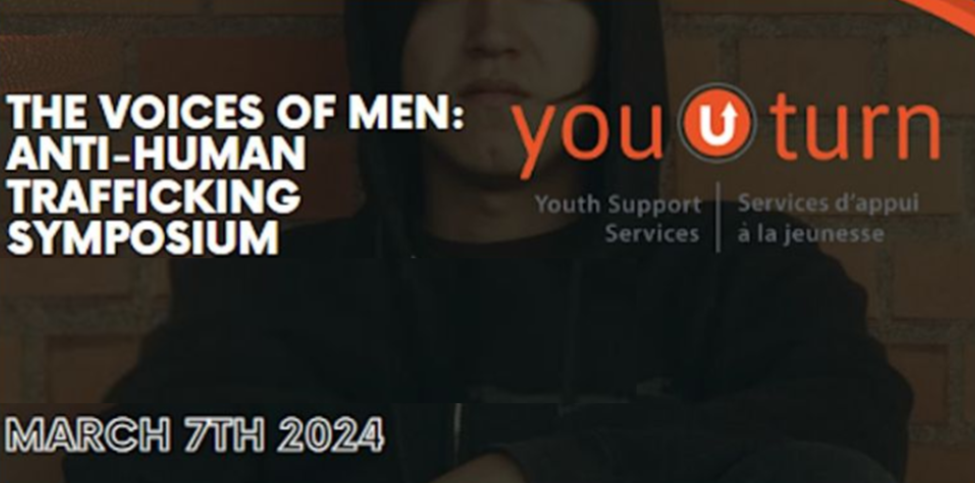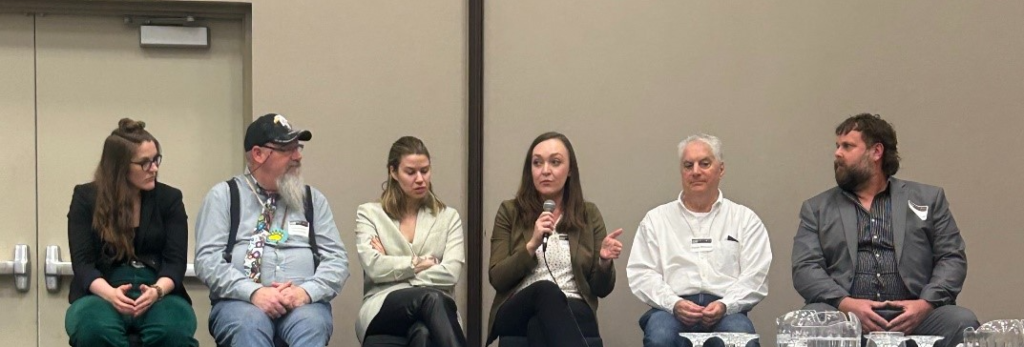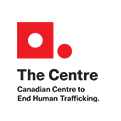Written by You Turn Youth Support Services and The Canadian Centre to End Human Trafficking

When you hear the words sex trafficking, the image that often comes to mind is one of a woman or girl being sexually exploited for someone else’s profit or gain. And while the vast majority of sex trafficking victims/survivors being recognized in Canada today identify as women and girls, a recent conference in Ottawa shed light on the need to ask ourselves: how are men and boys being affected by sexual exploitation and sex trafficking in Canada?
On March 7, 2024, You Turn Youth Support Services facilitated a one-day symposium called The Voices of Men: Anti-Human Trafficking Symposium in Ottawa, Ontario, to shed light on the experiences of men and boys who have experienced sex trafficking and sexual exploitation. Unfortunately, the voices of men and boys as victims and survivors are still a significant blind spot in the dialogue about anti-human trafficking in Canada. As service providers, advocates, and in the policy-making process, there’s a real risk that we don’t even know what we don’t know in identifying, supporting and preventing the sexual exploitation of men and boys.
Space was limited at this insightful in-person conference, so we’re breaking down some of the highlights for those who couldn’t be there.
Steven Procopio, ACSW, LICSW, a therapist, trainer and consultant, delivered the keynote address on the trauma experienced by male victims of trafficking and discussed the challenges that men and boys face when disclosing abuse and exploitation and the lack of recognition by social service agencies. Sex trafficking survivors can face significant stigma and shame, and boys and men can experience this in unique and heightened ways due to cultural perceptions of masculinity and gender roles, homophobia, and assumptions of males as perpetrators of human trafficking rather than victims. Steven’s presentation highlighted the unique indicators of trafficking in males, as well as the common long-term stages and consequences sexual exploitation and trafficking have on this group.
Julia Drydyk, Executive Director of The Canadian Centre to End Human Trafficking (“The Centre”), highlighted the lack of data on the issue of trafficking nationally, and even more so for male victims of sex trafficking. We do not have reliable statistics or training specially designed to support this population. Nationally, there is a significant gap in human trafficking-specific services available to men and boys who are victims/survivors of sex trafficking. To our knowledge, there are no dedicated anti-trafficking support programs in Canada that are specially designed to provide wrap-around support for male victims/survivors.
Inini Chip McHugh, Education Manager at Inuuqatigiit Centre for Inuit Children, Youth and Families, shared the importance of sacred medicines and culture in his own healing journey. Participants were asked to gather in a circle so that Inini could share his knowledge and lived experience in the traditional way of circle storytelling. Inini is Bonnechere Algonquin First Nation. In this shared space, Inini incorporated teachings of the four medicines: sage, sweet grass, cedar, and tobacco. As Inini told his story, he held meaningful and personal items for symposium attendees to see, including a drum, three gifted eagle feathers, and other culturally relevant items in traditional healing and wellness processes. Inini ended the impactful circle discussion with a call to action. Inini stated that creating a safe space for boys and men to share without judgement and within spaces led by positive male role models (men supporting men) doesn’t have to be as complicated as it seems to be. Inini highlighted the importance of the community working together towards a shared goal, leaving those in attendance feeling motivated and hopeful. Often, when a gap is noticed within any space, working to fill that gap effectively can seem like a daunting task with many question marks. Inini reminded folks that sometimes, the smallest steps make the most impact.

Julia Drydyk, Executive Director of The Centre, highlighted the lack of data on the issue of trafficking nationally, and even more so for male victims of sex trafficking.
Jessica Peacock and Kaitlyn Bick from Victim Services of Toronto’s Human Trafficking Prevention and Intervention program stressed the importance of understanding human trafficking along a continuum of exploitation, providing person-centred and trauma-informed services, and the value of embedding people with lived experiences of trafficking into anti-trafficking programming and prevention efforts. Jessica and Kaitlyn ended their presentation with a case study of a male trafficking survivor to illustrate the use of effective support tools and approaches. This case study demonstrated that although we currently don’t have many cases that come forward to draw on or learn from, there have been cases, such as the one shared, in which the strategies used resulted in success. This case study and conversation emphasized the importance of building from existing positive approaches rather than reinventing the wheel.
Owen Carroll, a Detective with the Ottawa Police Service Human Trafficking Unit, identified that in his eight years of being a member of the Human Trafficking Unit at Ottawa Police Service, this is only the second time the topic of male victims of sex trafficking was the focus of discussion. Detective Carroll underscored the critical need for increased attention and support for men and boys experiencing sexual exploitation and trafficking—a call to action that resonated throughout the event from all participants.
Actions needed for an anti-trafficking safety net that is welcoming and inclusive of male survivors:
- Undertake ethical research to better understand the realities of sex trafficking and sexual exploitation among men and boys in Canada. We need to build a foundation of knowledge that speaks to the lived realities of boys and men who have experienced sexual exploitation and trafficking in Canada if we’re going to be effective at preventing and responding to it.
- Advocate for funding and creation of safe spaces and support programs equipped to meet the unique needs of male survivors of sex trafficking and provide wrap-around support.
- Ensure there is equity and inclusion across all social services for all survivors of human trafficking so that existing programs are welcoming and equipped to serve male survivors.
- Challenge the dominant narrative of sex trafficking to include men and boys and identify biases that could cause people to respond harmfully or overlook signs of sexual violence and/or human trafficking of males.
- Increase training for social service agencies, housing providers, justice professionals and police so that male victims can feel supported and believed.
- Create peer support groups or survivor-led initiatives where male survivors can connect with others who have had similar life experiences, led by positive male role models who are survivors themselves. Peer support is empowering and can help reduce folks’ feelings of isolation and shame. We have seen the positive effects of this for girls and women.
- Establish safe housing options specifically tailored to the needs of male survivors of sex trafficking; this could include shelters, transitional housing programs, and long-term rehabilitation options that provide a supportive environment for healing and recovery.
- Develop outreach and educational materials inclusive of male experiences of sexual exploitation.
